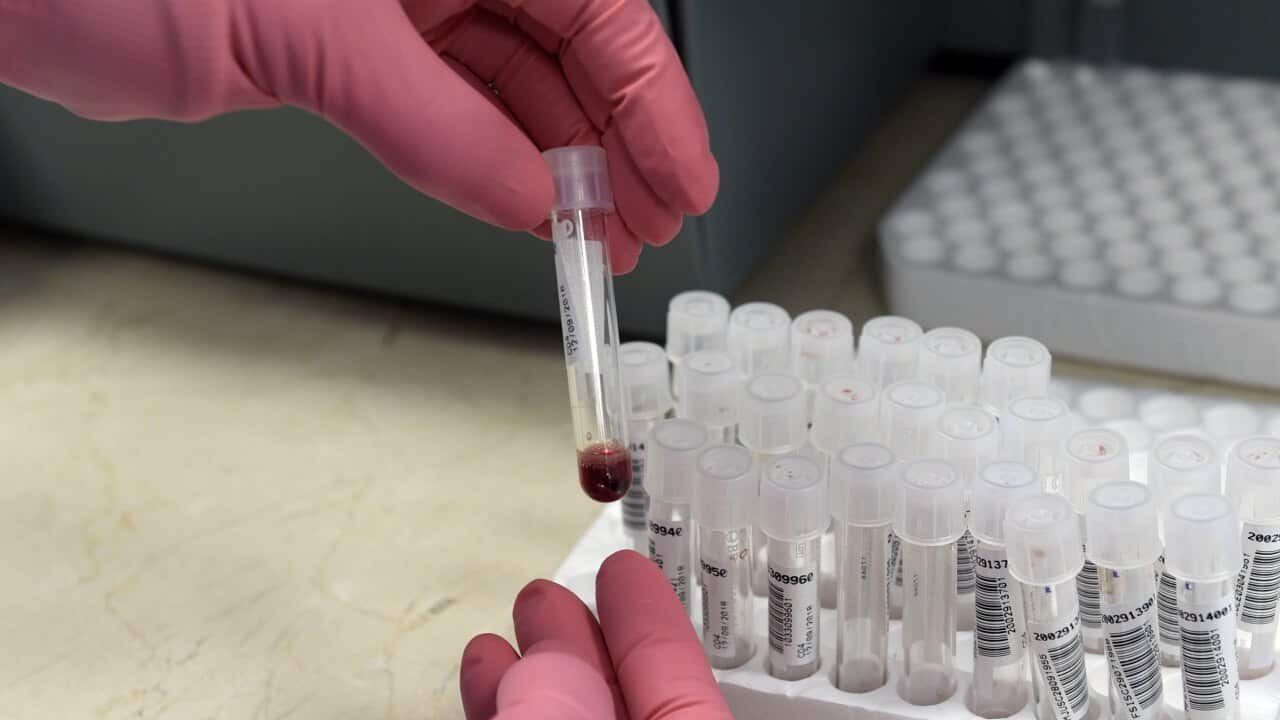I still remember that day so vividly, even though it was almost 40 years ago.
I was sitting in front of my doctor at the Melbourne Sexual Health Centre, when he told me I had HIV.
As a fit young 32 year old with a good job and a good life, I first thought I would probably have a strong enough immune system to fight off any challenge from the virus.
But a big part of me was scared of what my future would look like, if I had one at all.
Back in the 1980s, people knew very little of the virus and I was originally told that only one in 10 people that were HIV positive went on to develop AIDS.
If I was HIV-positive, then I assumed that a good proportion of my friends who had been engaging in visits to backroom bars and the promiscuous lifestyle of the times would be too, and we'd all be in this together.
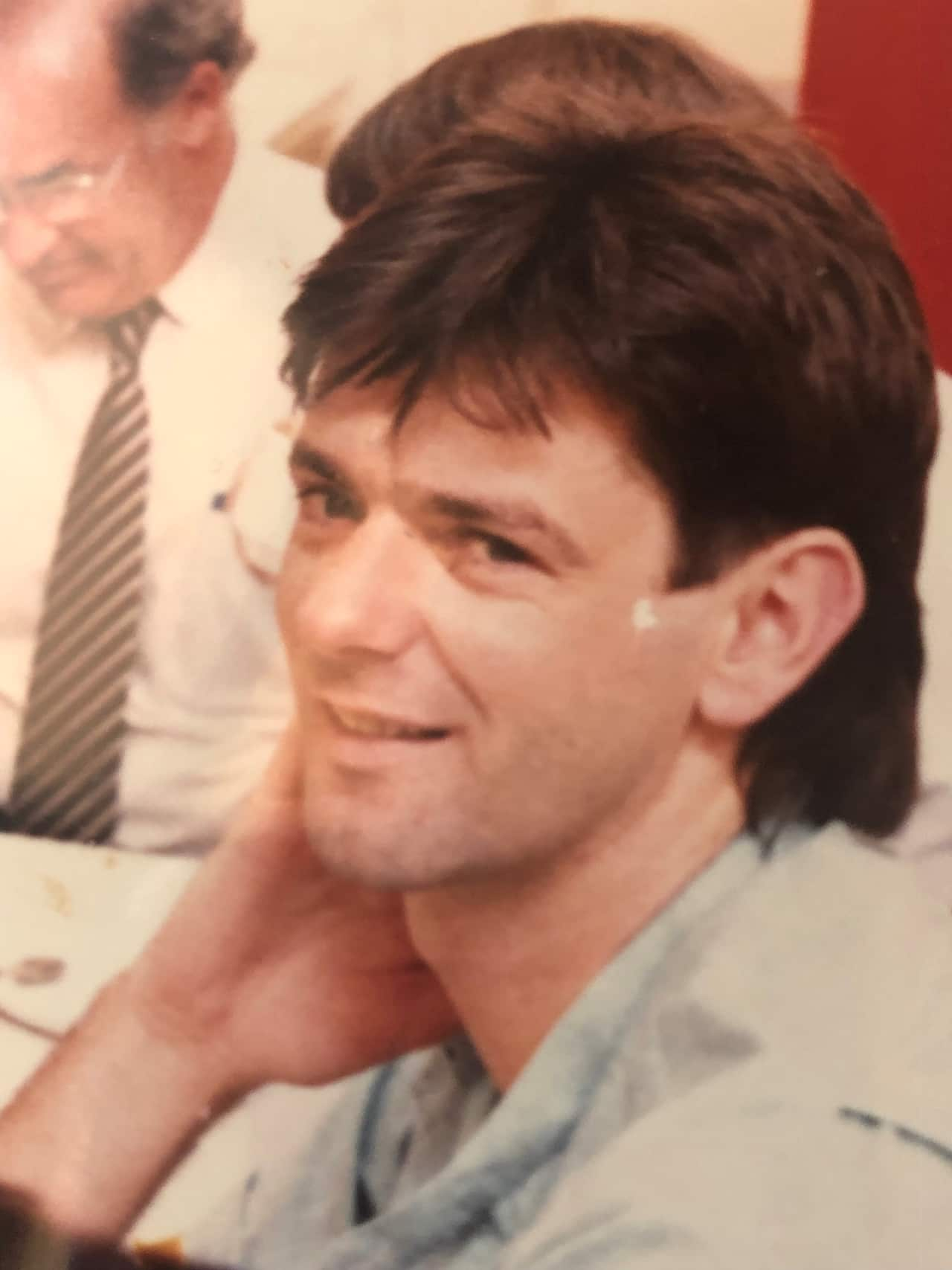
David says he felt like a 'medical guinea pig' as he was one of the first to trial drugs to combat HIV in the 1980s. Source: SBS
The bigger shock came as research findings started to be released from overseas gay and HIV journals and it was now deemed likely that most people infected with HIV at that time would be likely to get AIDS, get ill and maybe pass away.
I didn't have to wait too long to see if this prediction was to come true as, come the mid-80s, friends of mine started to get sick and die one by one.
Sometimes it was protracted drawn-out battles where the patient just got weaker and weaker and seemed to fade away.
Sometimes it was dramatic cancers like Kaposi sarcoma that could be resting in someone's body and then in the cruellest of ways suddenly appear with huge black lesions all over the body and face - as if marked by death itself.
People you loved and cared for were gone in a weekend, there was so little time to grieve before another friend got sick.
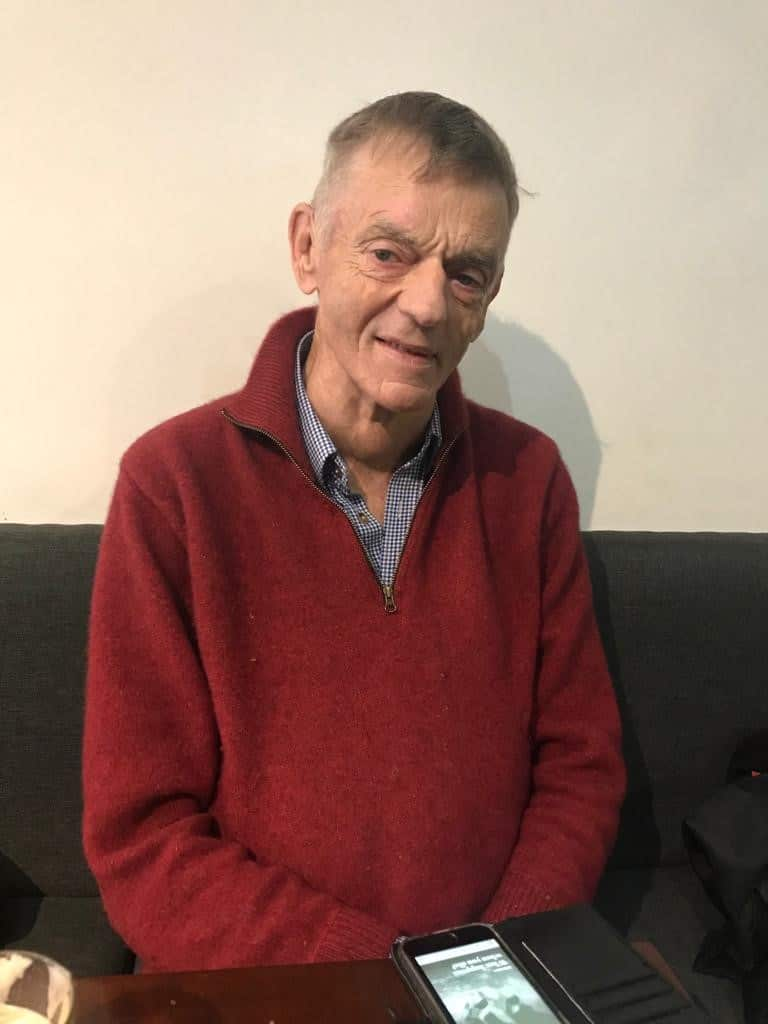
David had a near-death experience and continued to battle multiple HIV-related illnesses over the years. Source: SBS
I thought it was my time to go
In February 1989, it was my turn.
I developed one of the most common AIDS conditions, Pneumocystis Pneumonia (PCP).
PCP is caused by a fungus that gets into your lungs when you have a weakened immune system.
As I became extremely ill and members of my family were called to my bedside, my doctor told me it may be my time. My family and I feared the worst but amazingly, one of the high-dose antibiotics they trialled very late in the piece worked.
I survived to live another day.
From that moment on, it was a day-to-day existence, trying to not let fear of your mortality swallow up your days and instead, I concentrated on work as an activist for the newly formed 'People Living with HIV/AIDS Victoria' group now known as .
One battle after another
After surviving my first AIDS-related condition, I went on to battle four other AIDS-related illnesses over the next seven years.
Most of the time I felt like a medical guinea pig, trialling drug after drug, one of which I still bear the side effects to this day when it stripped me of a large portion of the muscles in my arms and legs.
I spent almost as much time as an inpatient and outpatient at Fairfield Hospital in Melbourne as I seemed to at home, and somehow the stigma that surrounded HIV at the time hardly reared its ugly head on that campus - much to the credit of the amazing culture and care of the nurses and doctors who handled each case with such compassion.
It was clear the medical staff had educated themselves about the risks and did not want patients to feel stigmatised for having the virus, but that was not the case for a lot of HIV-positive patients across the country, many facing gross overreactions and fear from staff when presenting for treatment.
Then came the medical breakthrough
In the mid-1990s, we saw the advent of triple combination therapy, the Highly Active Antiviral Therapy class of drugs.
These breakthroughs, while they meant quite a pill burden for me some time, undoubtedly saved my life.
In 1991 I had a T-cell count of 60 which actually went down to zero by 1993.
You're not supposed to survive on zero T-cells, the main marker of your immune system.
After several months on these antivirals, my counts started to climb to 60 again, 120 and eventually above the 200 mark where you are likely to survive.
Newer classes of drugs have been developed and now I only need two to tackle my virus every day.
They are so effective my long-term male partner has never tested HIV-positive and my doctor said he is unlikely to.
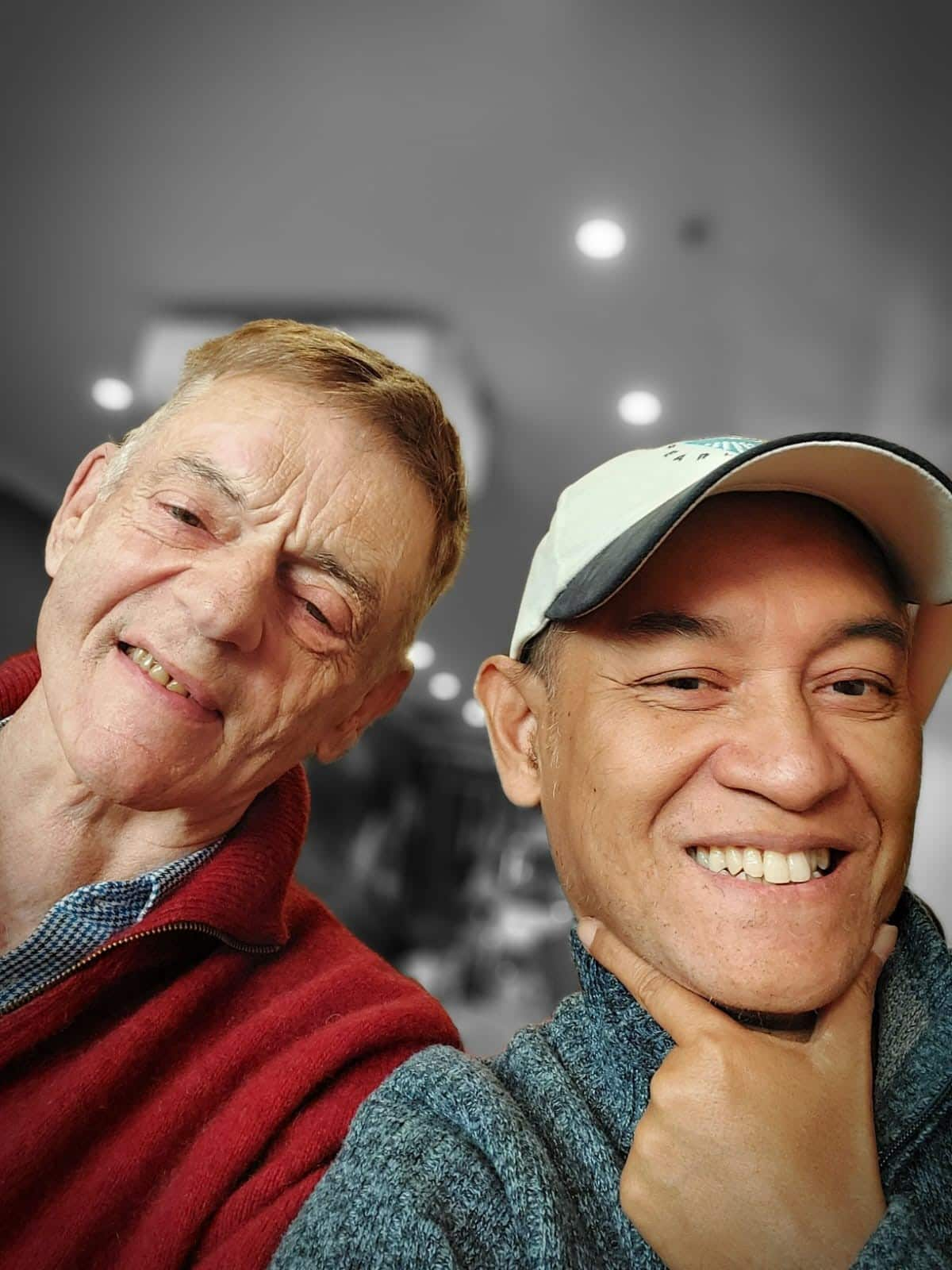
David and his partner Joko. Source: SBS
Holding on to hope
Much of my life as an HIV-positive gay man was spent not expecting a partner to share my bed at night.
Even though the specialists and my doctor said there was minimal risk and I could have sex if I looked out for sexually transmitted infections, I doubted there would be many willing suitors lined up to take the plunge.
But one whirlwind night in Bali at a gay nightclub I met a sexy young man named Joko (well, it turned out he was in his fifties!) who whisked me home to my unit before I knew what was happening!
Two days later I developed a 'Bali belly' problem and ended up in the local Seminyak hospital.
Joko was with me every step of the way. He is still with me seven years later and now living with me in Australia.
No one is more surprised than me that Joko and I are still going strong, but it does show that no matter what, HIV does not need not be an obstacle to a long-lasting relationship.
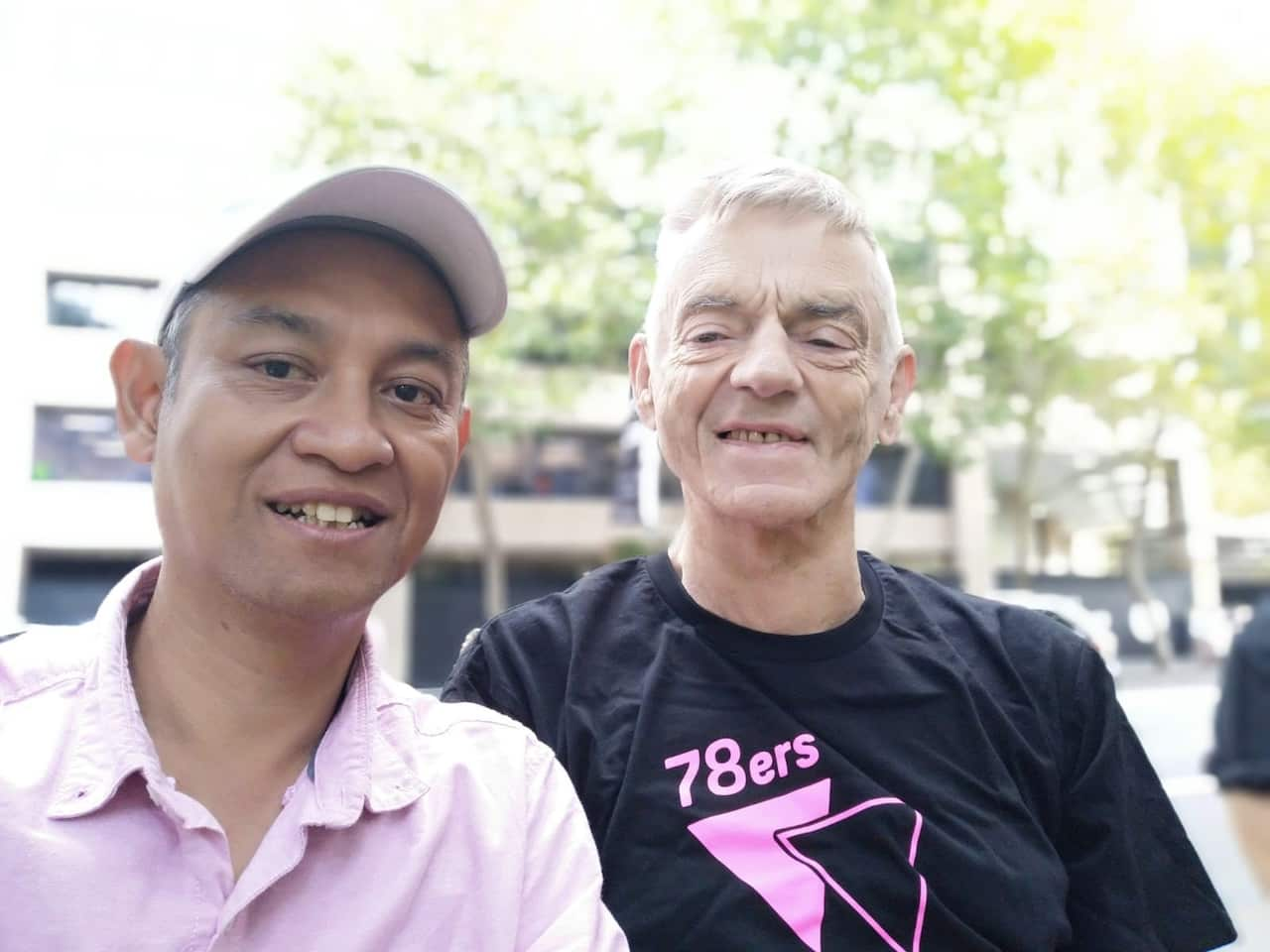
David and Joko (left) have been together for seven years. David says he never expected to find love as an HIV-positive gay man. Source: SBS
Defying the odds every day since
Despite the recent medical advances, it hasn't all been a bed of roses.
There are multiple co-morbidities that have come with ageing. My life consists of more doctors and more treatments.
Amazingly though, I recently celebrated my 70th birthday with 180 of my closest friends.
I told them the main reason I'm still here celebrating with you is because you all gave me a reason to live.
You loved me for who I am and didn't judge or censor me because of something in my blood.



